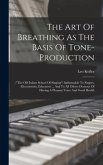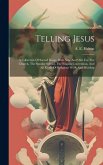This work examines the sociopolitical implications of the membership, musical and political performance, choral material, leadership, and member perceptions of the German Workers' Choral Association (Deutscher Arbeitersängerbund, or DAS) during the years of the Weimar Republic, 1918-1933. This organization of over 6,000 choruses and 500,000 members exemplified the broader movement for proletarian cultural advancement. Like other workers' organizations, including the sport and cycling groups, the DAS was closely linked with the German Social Democratic Party (SPD) and Free Trade Unions and explicitly aligned itself with the socialist working-class movement. Comparisons with its bourgeois rival, the German Choral Association, other workers' organizations, Communist and Nazi singers, and worker choruses in other nations, as well as case studies in Augsburg and Solingen, illuminate the development of the DAS. This work draws upon archival sources from Solingen, Bonn, Augsburg, Plauen, Feuchtwangen, and Dortmund to analyze the sociocultural and political milieu of the Weimar-era DAS and the organized working class as a whole.
Bitte wählen Sie Ihr Anliegen aus.
Rechnungen
Retourenschein anfordern
Bestellstatus
Storno








